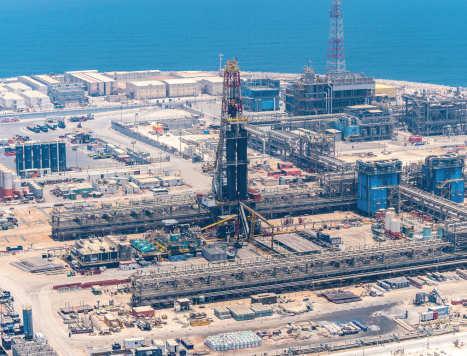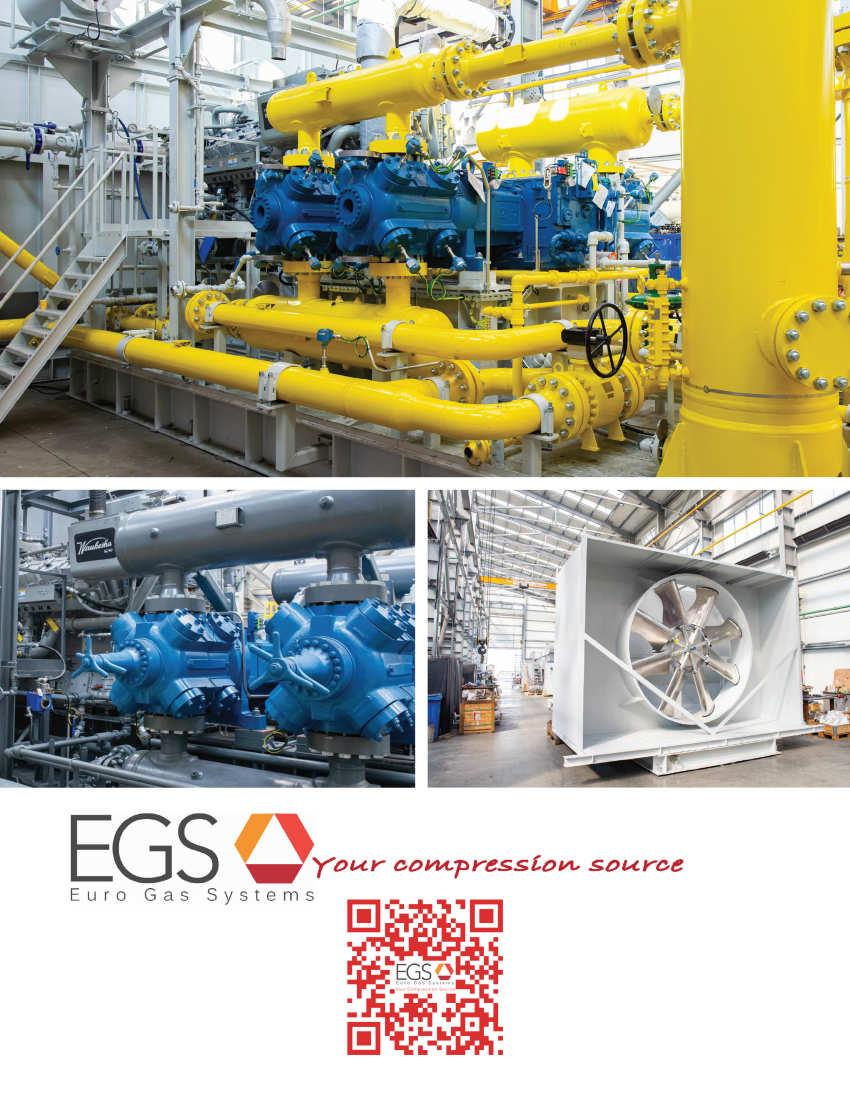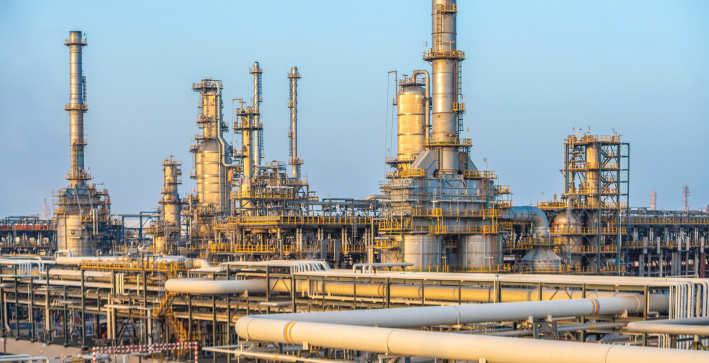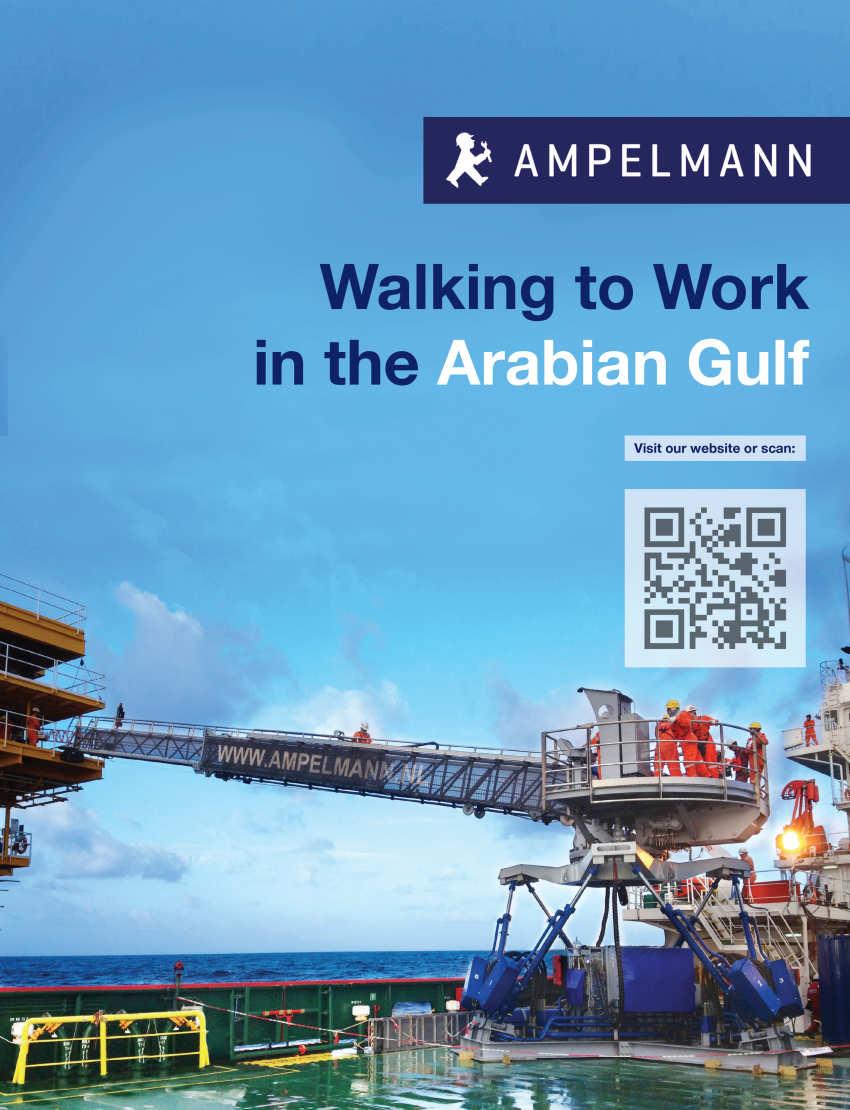
6 minute read
A safe pair of hands in changing times
ADNOC: a safe pair of hands in
changing times
Abu Dhabi’s state energy giant will play a pivotal role in the global energy transition, nurturing clean and sustainable technologies alongside the backbone of its traditional hydrocarbons output. Martin Clark reports.
ADNOC, THE ABU DHABi National Oil Company, continues to push hard as it expands and grows the UAE’s energy profile far and wide. The state-owned energy group, which has multiple subsidiaries, is already estimated to be the world’s 12th largest oil company by production – not bad for a country of just 10 million people.
Its oil production capacity in 2021 exceeded four million bpd, though there are plans to grow this to five million by 2030, underlining confidence in future market demand. There is no doubt ADNOC has a big role to play as the world’s energy future shifts and is redefined by alternative energy sources and renewables. Like other Gulf states, the UAE will underpin demand during this transitional, uncertain time.
While carbon capture and other green initiatives form a major part of the group’s present-day strategy, it is still a leading light in providing the essential fossil fuels required to keep the world’s economy ticking.
Dr. Sultan Ahmed Al Jaber, ADNOC’s managing director and CEO, as well as the UAE’s Minister of Industry and Advanced Technology, told a conference recently that his nation wants to work on a pragmatic, realistic plan for energy transition and decarbonising, while investing in the new cleaner energies of tomorrow.
“Yes, we must all commit to mitigating the impact of global energy supplies, but let’s keep our focus on capturing carbon – not cancelling production,” he told the Energy Intelligence Forum in London during early October. “Let’s hold back emissions, not progress.”
Let’s hold back emissions, not progress.”
ADNOC Drilling has won major contracts to expand oil and gas production.
Vital role in energy transition
With COP27, the key climate change summit in Sharm el-Sheikh, Egypt, just around the corner, the UAE is set to host the follow-up event, COP28 in late 2023. It underscores the UAE’s role in championing alternative energy sources, alongside its traditional oil and gas extraction industry.
In 2009, Abu Dhabi was named as the world headquarters fo the newly-formed International Renewable Energy Agency. In the meantime, ADNOC is investing in greater production capacity of its signature crude, Murban – which has half the carbon intensity of the industry average – and tripling its liquefied natural gas (LNG) capacity to more than 15 million tonnes per annum (mtpa). This trade will be supported by a 9.6mtpa LNG production and shipping terminal in the Emirate of Fujairah, a location which avoids transiting the narrow and congested Strait of Hormuz.
Yet, there is a clear and obvious attempt to embed clean technology throughout the energy chain. ADNOC is using advanced technologies and renewable solar and nuclear energy to reduce the carbon intensity of its oil and gas output by a further 25% by the end of the decade, for instance.
Milestones so far include the implementation of a zero routine gas flaring policy in the early 2000s and establishing the region’s first commercial-scale carbon capture and underground storage (CCS) facility in 2016. Looking ahead, it is also putting in place the building blocks to encourage hydrogen take up, as well as expanding the use of CCS systems.

ADNOC Refining’s waste heat recovery project at Ruwais is vital to the ongoing expansion at Ruwais.
Decarbonising offshore

Much of its current project focus has been about utilising these and other ideas to decarbonise its vast oil and gas empire. It is a strategy that embraces multiple projects and ideas, as well as a good dose of inventiveness.
In a recent example, ADNOC and Abu Dhabi National Energy Company PJSC (TAQA) announced a US$3.8bn strategic power project that will significantly decarbonise offshore production. Working with a consortium of Korea Electric Power, Kyushu Electric Power Company and Électricité de France, it marks the first-of-its-kind highvoltage direct current (HVDC) subsea transmission network in the MENA region.
The power consortium will build, own and operate the state-of-the-art transmission system for a period of 35 years, before returning it to ADNOC. It is expected to reduce the carbon footprint of ADNOC’s offshore operations by more than 30%, replacing existing offshore gas turbine generators with more sustainable power sources available on the Abu Dhabi onshore power network, operated by TAQA’s wholly owned subsidiary, Abu Dhabi Transmission and Despatch Company (TRANSCO).
The mega project also fits in with the UAE’s broader ‘Net Zero by 2050 Strategic Initiative’. Its vast scale reflects Abu Dhabi’s mighty offshore production infrastructure. The transmission system will have a total installed capacity of 3.2GW and will comprise two independent subsea HVDC links and converter stations, with commercial operations set to begin in 2025. Up to 100% of ADNOC’s grid power is being supplied by clean nuclear and solar energy.
Upstream investment continues
At the same time, ADNOC continues to invest aggressively in its production capacity. It has just awarded a US$1.53bn contract to a subsidiary, ADNOC Drilling, for offshore drilling work in support of its expansion plans. The two-year contract covers the provision of 12 jack-up rigs and two island rigs, as well as associated drilling services.
It is also a significant boost for local, incountry services – around 80% of the award value will flow back into the UAE’s economy. Yaser Saeed Almazrouei, ADNOC upstream executive director, said the award will support the group’s expansion of crude oil production to five million bpd by 2023, as well as build gas self-sufficiency for the country.
“Through this award, ADNOC Offshore will continue to responsibly harness the energy in Abu Dhabi’s waters, as we increase production capacity to meet the world’s growing demand for energy with lower carbon intensity oil and gas.”
Despite the current obsession with net zero, particularly in the West, demand for Abu Dhabi’s oil and gas remains as great as ever, particularly from across the fast-growing Asia region, which still also burns huge amounts of coal for its power generation.
Downstream efficiencies
Active across the whole energy chain, ADNOC is likewise making efforts to maximise its downstream production, while curbing negative environmental impacts.
ADNOC Refining, a joint venture with international energy companies, Eni and OMV, is soon to complete the first phase of its innovative waste heat recovery project at its General Utilities Plant in Ruwais.
The US$600mn project, which was started in 2018, will recycle waste heat generated from the plant to produce up to an additional 230MW of electricity per day – enough to power hundreds of thousands of homes.
The project captures exhaust heat from the plant’s gas-powered turbines – which is currently vented into the atmosphere – to produce steam that is subsequently used for power production. It will also produce 62,400 cu/m of distilled water per day for use across the facility.
Phase one of the project, which includes the operation of two new boilers and turbines, will be completed before the end of the year. Phase two, which includes a further two boilers, is expected to be completed around the middle of 2023.
Overall, the project will increase power production and thermal efficiency at the plant by around 30%, with no additional carbon dioxide emissions.
“The Waste Heat Recovery project will revolutionise power and water generation at our plant in Ruwais, and is vital to the ongoing expansion of Ruwais as part of ADNOC’s 2030 smart growth strategy,” commented Abdulla Ateya Al Messabi, chief executive officer of ADNOC Refining. n









